Felix Tshisekedi
President Felix Tshisekedi took power in 2019 after winning a disputed election which another candidate, Martin Fayulu, insists he won.
Originally from the DRC's central Kasai region, Tshisekedi is the head of the UDPS party, founded by his late father -- once an iconic opposition politician.
Felix Tshisekedi has raised his profile on the international stage, making frequent trips abroad, in contrast to his reclusive predecessor Joseph Kabila.
He also pledged to improve the lives of the poor, fight corruption and pacify the conflict-torn eastern DRC.
Critics say the 60-year old has failed to live up to his promises. But with the opposition divided, Tshisekedi is considered the favourite to win in December.
Moise Katumbi
Moise Katumbi, 58, is a wealthy businessman and owner of Congolese football club TP Mazembe, based in the southeastern city of Lubumbashi.
He is a former governor of ex-Katanga province, the mineral-rich economic motor of the DRC, where he was born.
Katumbi is a target for critics who charge that he is not fully Congolese, however, because his father was Italian. One such critic unsuccessfully petitioned the constitutional court to prevent Katumbi from standing for election.
As leader of the "Ensemble pour la Republique" party, Katumbi argues that his track record developing Katanga as provincial governor qualifies him for the presidency.
Martin Fayulu
Martin Fayulu, 66, is a former oil executive who leads the Ecide party. He wants payback.
For the past five years, his supporters have referred to him as the 'president-elect' -- arguing that he was the true winner of the 2018 election.
Fayulu has said he believes the election in December will be fraudulent and it was initially unclear whether he would run. He announced his candidacy on September 30.
Denis Mukwege
A renowned surgical gynaecologist, Denis Mukwege was awarded the 2018 Nobel Peace Prize for his effort to end sexual violence.
The 68-year old has long been a trenchant government critic, and has repeatedly urged justice for the victims of brutal conflict in the east.
But while reputed in medical and humanitarian circles for his work with rape victims, Mukwege has no solid political base.
On October 2, he ended months of speculation about his political ambitions when he announced his candidacy, denouncing the "corrupt and predatory practices" that keep most Congolese people poor.
Mukwege is the son of a Pentecostal pastor and hails from eastern province of South Kivu province, where he runs a hospital.
Augustin Matata Ponyo
Fifty-nine-year old Augustin Matata Ponyo served as a finance minister and prime minister under ex-president Joseph Kabila.
As the leader of the LGD party, he has faced legal troubles over allegedly embezzling public funds, a charge he fervently denies. A judge has postponed hearings in his corruption case to March 18.
Adolphe Muzito
Adolphe Muzito is also a former stalwart of ex-president Kabila. He served, at various stages, as his prime minister, finance minister and budget minister.
The 66-year old leads the 'Nouvel Elan' party, which was once in coalition with Martin Fayulu's party.
Delly Sesanga
A lawyer and MP from Kasai- Central province, Delly Sesanga, 53, is the leader of the Envol party.
He backed Felix Tshisekedi for president in 2018 but has since become his bitter critic, denouncing broken promises and his "inability to straighten the country out".
Five things to know about DR Congo
The Democratic Republic of Congo, formerly known as Zaire, is a huge and varied country with a turbulent political history, which is currently ravaged by conflict in its east.
Here are five things to know about this central African nation:
Continent-sized
The DRC spans over 2.34 million square kilometres (904,000 square miles) -- roughly the size of continental western Europe.
The second-largest African country in terms of surface area, it is also the fourth most populous state on the continent, with an estimated 100 million inhabitants.
Some 250 different ethnic groups live in the DRC, speaking hundreds of different languages.
French is the country's official language, and local tongues Kikongo, Lingala, Tshiluba and Swahili are also officially recognised.
Despite its size and diversity -- the former province of Katanga tried to secede in the 1960s -- there is a fierce sense of national unity.
Mineral wealth, dire poverty
The DRC is awash with minerals and precious stones, from gold, diamonds and coltan to tin, copper and cobalt.
Harbouring the Congo River -- the second-largest in Africa after the Nile -- the DRC also has huge hydroelectric potential, as well as 80 million hectares (197 million acres) of arable land.
But decades of war, corruption and chronic mismanagement means that little of the country's enormous wealth trickles down to the population.
About two-thirds of the Congolese population survive on under $2.15 a day, according to the World Bank.
Turbulent politics
The DRC has a history of turbulent politics. Two of its governments have been overthrown violently: in 1965 and then in 1997.
Two of the country's leaders have also been assassinated: Patrice Lumumba in 1961 and Laurent-Desire Kabila in 2001.
Elections are often marked by violence. The vote that brought incumbent President Felix Tshisekedi to power in 2018 marked the first peaceful changeover in Congolese history -- although the results were fiercely disputed.
According to the interior ministry, there are 910 registered political parties in the country.
Conflict
Two major wars devastated the DRC in its recent history. The First Congo War, which lasted between 1996-1997, culminated in the overthrow of former dictator Mobutu Sese Seko.
The Second Congo War, from 1998 to 2003, drew in nine African states and saw the proliferation of dozens of militia groups.
Most of the DRC has returned to relative stability. But its mineral-rich east -- bordering Uganda, Rwanda and Burundi -- remains plagued by armed groups and brutal violence, a legacy of the recent regional wars.
Rumba, survival
Congolese people are renowned for their sense of humor and resourcefulness in the face of trying conditions.
Many jokingly refer to "Article 15" of the constitution, which purports to instruct citizens to sort things out themselves.
Music also plays an outsize role in the country's culture. UNESCO listed Congolese rumba as intangible cultural heritage of humanity in December 2021.
Congo is also famed for its so-called sapeurs -- dandies known for their ultra-elegant clothing and sense of style.




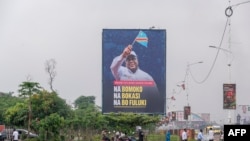
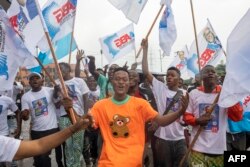
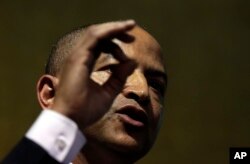
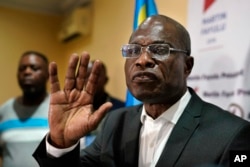
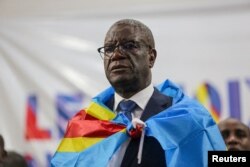










Forum